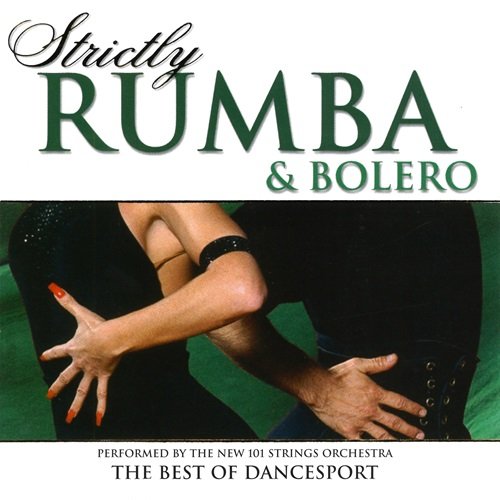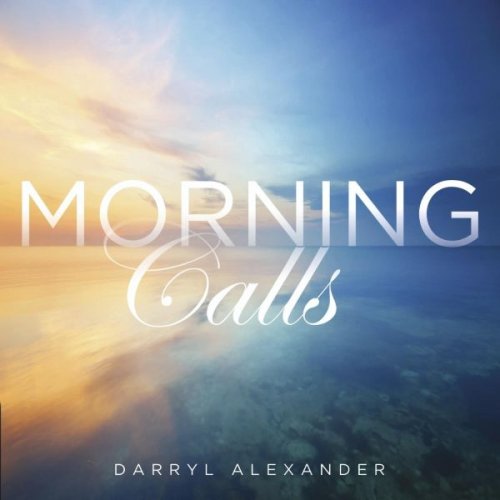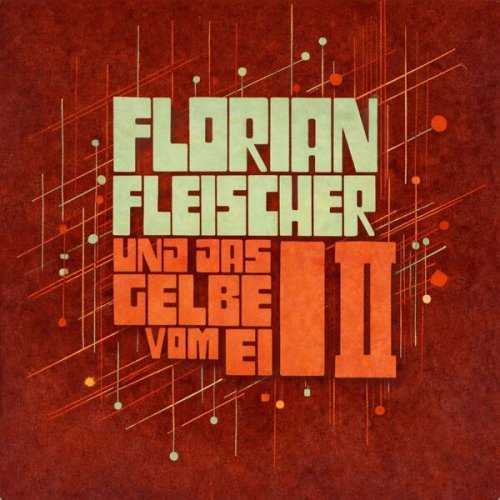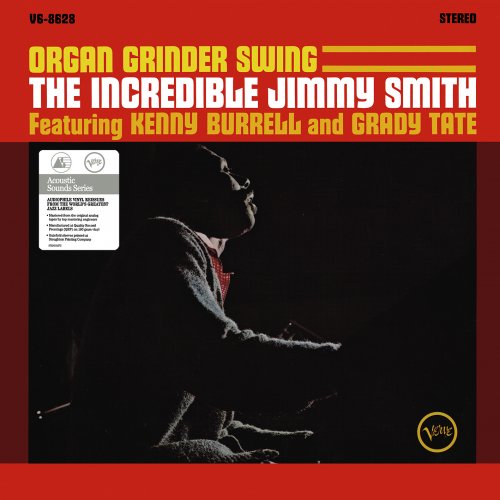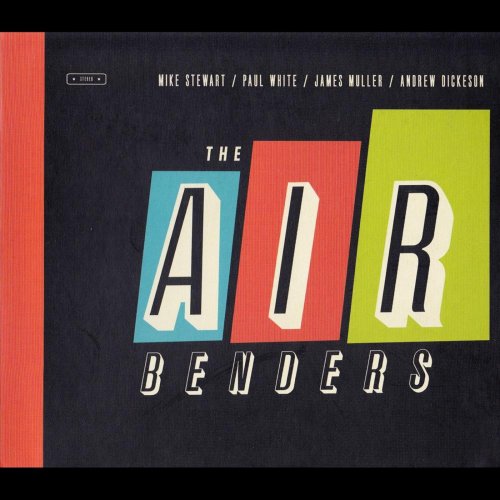Berliner Philharmoniker, Claudio Abbado - Dvorák: Symphony No.9, Othello Overture (2000)
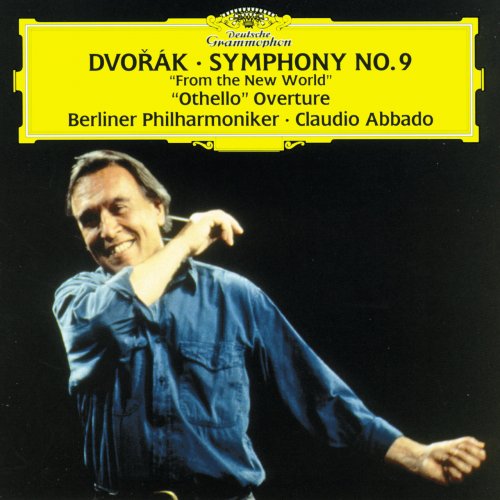
Artist: Berliner Philharmoniker, Claudio Abbado
Title: Dvorák: Symphony No.9, Othello Overture
Year Of Release: 2000
Label: Deutsche Grammophon
Genre: Classical
Quality: FLAC (tracks) / MP3 320 Kbps
Total Time: 58:09
Total Size: 270 Mb / 148 Mb
WebSite: Album Preview
Tracklist: Title: Dvorák: Symphony No.9, Othello Overture
Year Of Release: 2000
Label: Deutsche Grammophon
Genre: Classical
Quality: FLAC (tracks) / MP3 320 Kbps
Total Time: 58:09
Total Size: 270 Mb / 148 Mb
WebSite: Album Preview
1. Dvorák: Othello Overture, Op. 93, B. 174 (Live)
2. Dvorák: Symphony No. 9 in E Minor, Op. 95, B. 178 - "From the New World" - 1. Adagio - Allegro molto (Live)
3. Dvorák: Symphony No. 9 in E Minor, Op. 95, B. 178 - "From the New World" - 2. Largo (Live)
4. Dvorák: Symphony No. 9 in E Minor, Op. 95, B. 178 - "From the New World" - 3. Scherzo (Molto vivace) (Live)
5. Dvorák: Symphony No. 9 in E Minor, Op. 95, B. 178 - "From the New World" - 4. Allegro con fuoco (Live)
Performers:
Berliner Philharmoniker
Claudio Abbado, conductor
The Claudio Abbado recording of the Dvorak New World Symphony has managed to secure itself a place among the top digital versions of this much-recorded work, alongside the Dresden performance of James Levine, also on DG. Taken from live performances in 1997, it shows every sign of spontaniety without any loss of dramatic bite or xxcitement. Abbado makes full use of his theatrical background to bring about this effect both in the symphony and in the welcome, perfectly-chosen fill-up, and elicits peerless and attentively-detailed playing from the Berliners. To top it off, DG provides perfect recorded sound containing the hallmarks of what an ideal digital recording should sound like - fullness, weight, clarity, warmth, transparency and atmosphere.
Before the symphony opens, Abbado treats us to a thrilling account of the Othello Overture. This aptly-chosen and welcome fill-up not only serves to increase the playing-time (from 45 minutes to one full hour) and eentual economic attractions to the disc, but to whet the listener's appetite for what's to come because of the powerful and dramatic overtones common to both works. This is especially so when the overture has some small hints of the composition of the main work. Abbado's performance of the overture never fails to thrill, and the sharp contrasts between drama and lyricism are beautifully brought out.
The overture is all over in a quarter of an hour, and we are drawn into the more familiar world of the symphony. After a repository opening, Abbado lurches into the first movement with energy and a burst of action to generate keenly-felt tension throughout his performance. There may be tempo fluctuation in the lyrical sections, but Abbado mixes lyricism with drama and excitement engagingly, and he also creates a telling effect in the last few pages of this movement. The Largo is beautifully played, and shows a positively lyrical aspect of this perforance. The string sound shimmers like diamonds, and the wind solos are gorgeously played, especially the celebrated oboe solo. It seems that the music has been considerably freshened, with playing of hushed intensity and an aching sense of wistfulness and nostalgia. Still, in Abbado's hands, the movement never degenerates or loses its concentratino. The performance kicks off again with a sense of toughness in the dynamic and pulsating Scherzo, whose trio section shows a sunny side to this performance with crisply and lightly-articulated flutes to give a light, airy-like character to the Schubertian dance. But in the Finale, where my greatest enthusiasm lies, Abbado crowns his wonderful performance by weaving the separate strands of argumentative thread together with skill and maintains excitement well up to the closing pages. I'm sure that there are some people who may complain about some routine performance here, but this is only a minor problem that does not occur in the other movements, and the peerless playing makes up for it.
To sum everything up, this Dvorak New World seems to me one of the few perfect digital recordings to come my way in recent years. As a matter of fact, I have nothing bad to say about this performance, except from the angles of others. So I can heartily recommend it to anybody who loves Dvorak, Claudio Abbado, or an evergreen symphony. To end, the best thing is to congratulate DG and Claudio for an excellent job well done, and to commend the Berliners for living up to their name in giving another glorious performance of the symphony that is fit enough for Karajan, Kubelik and Tennstedt to free their spirits and live again in the sound.
Before the symphony opens, Abbado treats us to a thrilling account of the Othello Overture. This aptly-chosen and welcome fill-up not only serves to increase the playing-time (from 45 minutes to one full hour) and eentual economic attractions to the disc, but to whet the listener's appetite for what's to come because of the powerful and dramatic overtones common to both works. This is especially so when the overture has some small hints of the composition of the main work. Abbado's performance of the overture never fails to thrill, and the sharp contrasts between drama and lyricism are beautifully brought out.
The overture is all over in a quarter of an hour, and we are drawn into the more familiar world of the symphony. After a repository opening, Abbado lurches into the first movement with energy and a burst of action to generate keenly-felt tension throughout his performance. There may be tempo fluctuation in the lyrical sections, but Abbado mixes lyricism with drama and excitement engagingly, and he also creates a telling effect in the last few pages of this movement. The Largo is beautifully played, and shows a positively lyrical aspect of this perforance. The string sound shimmers like diamonds, and the wind solos are gorgeously played, especially the celebrated oboe solo. It seems that the music has been considerably freshened, with playing of hushed intensity and an aching sense of wistfulness and nostalgia. Still, in Abbado's hands, the movement never degenerates or loses its concentratino. The performance kicks off again with a sense of toughness in the dynamic and pulsating Scherzo, whose trio section shows a sunny side to this performance with crisply and lightly-articulated flutes to give a light, airy-like character to the Schubertian dance. But in the Finale, where my greatest enthusiasm lies, Abbado crowns his wonderful performance by weaving the separate strands of argumentative thread together with skill and maintains excitement well up to the closing pages. I'm sure that there are some people who may complain about some routine performance here, but this is only a minor problem that does not occur in the other movements, and the peerless playing makes up for it.
To sum everything up, this Dvorak New World seems to me one of the few perfect digital recordings to come my way in recent years. As a matter of fact, I have nothing bad to say about this performance, except from the angles of others. So I can heartily recommend it to anybody who loves Dvorak, Claudio Abbado, or an evergreen symphony. To end, the best thing is to congratulate DG and Claudio for an excellent job well done, and to commend the Berliners for living up to their name in giving another glorious performance of the symphony that is fit enough for Karajan, Kubelik and Tennstedt to free their spirits and live again in the sound.
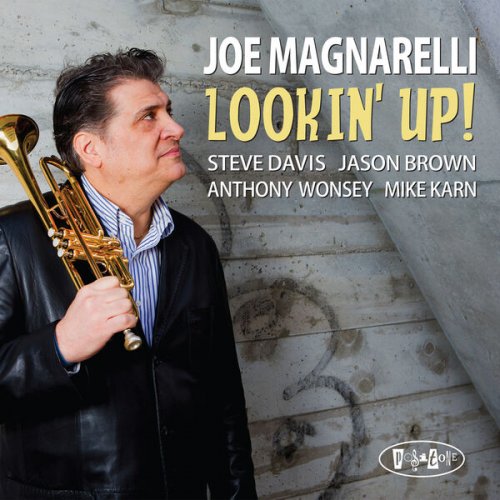
![Ablaye Cissoko, Kiya Tabassian, Constantinople - Estuaire (2026) [Hi-Res] Ablaye Cissoko, Kiya Tabassian, Constantinople - Estuaire (2026) [Hi-Res]](https://img.israbox.com/img/2026-02/05/bd2ycop79dvrdm4dy879uxato.jpg)

